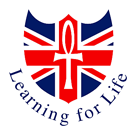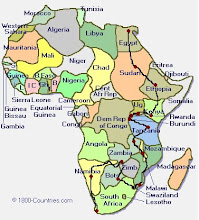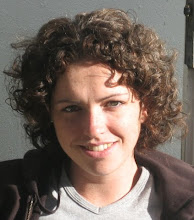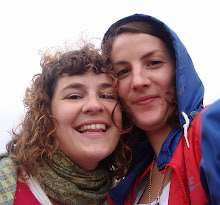 We all woke very early to get on the road, and as we headed further down into The Rift Valley the temperature began to rise. In Jinka we were to head for Mago National Park where we were to visit The Mursi people. This tribe are unique to Ethiopia and have some fascinating customs and traditions, in particular the lip plate. Young girls cut their lip to show their strength and their crossing into womanhood. They then insert a clay or wooden plate which gets larger as the girl matures.
We all woke very early to get on the road, and as we headed further down into The Rift Valley the temperature began to rise. In Jinka we were to head for Mago National Park where we were to visit The Mursi people. This tribe are unique to Ethiopia and have some fascinating customs and traditions, in particular the lip plate. Young girls cut their lip to show their strength and their crossing into womanhood. They then insert a clay or wooden plate which gets larger as the girl matures.
Mission statement
The aim of Cairo to Cape Town is to look at how different African international schools are engaging with their local community, and to develop strategies for successful positive links. We intend to create a network of 10 international schools and 10 community groups using the theme of global citizenship. By developing community connections we aim to promote mutually beneficial and sustainable local partnerships.
(For more information on global citizenship visit http://www.standards.dfes.gov.uk/schemes2/ks12citizenship/?view=get)
(For more information on global citizenship visit http://www.standards.dfes.gov.uk/schemes2/ks12citizenship/?view=get)
Nadine Bogan and Liza Uprichard
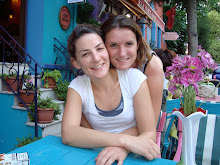
A little bit about who we are...
Liza Uprichard
My Northern Irish parents had already been working in Kabompo, Zambia for two years by the time I came along. With a teaching mum and an agronomist for a dad, I spent all of my childhood in Southern Africa, with Ndola being the first home I knew. Later, dad’s work with farmers and developing farming practices meant that the places we lived were often fairly remote and this, along with years of wonderful family travel made southern Africa a part of the world I came to know well, and couldn’t fail to love.
Choices through higher education in the UK first led me to study Agriculture and Economics… a brief two year affair which ended in another trip to South Africa before returning to the UK to do a degree in Primary Education. I loved teaching in Streatham, south London for a further two years before deciding, inevitably, to move overseas again.
A trip the length of Africa is something I have always wanted to do. The beauty, the people, the changing landscape… the ‘flats’, the ‘stucks’ the negotiating tricky situations! The frustrations, the mind boggling and the bizarre… all of it. And getting to do it not only without taking a break in my career, (which I love), but helping to push it in the direction I’ve always wanted it to go is an unbelievable opportunity.
Choices through higher education in the UK first led me to study Agriculture and Economics… a brief two year affair which ended in another trip to South Africa before returning to the UK to do a degree in Primary Education. I loved teaching in Streatham, south London for a further two years before deciding, inevitably, to move overseas again.
A trip the length of Africa is something I have always wanted to do. The beauty, the people, the changing landscape… the ‘flats’, the ‘stucks’ the negotiating tricky situations! The frustrations, the mind boggling and the bizarre… all of it. And getting to do it not only without taking a break in my career, (which I love), but helping to push it in the direction I’ve always wanted it to go is an unbelievable opportunity.
Nadine Bogan
I experienced a very transient childhood, as a family we always joke that we have had far too many homes to count as we gradually moved into double figures. I was born in Gloucester and then grew up in the south of England.
As a family we became quick at adapting to new places. Being inspired by my mum, I developed a passion for music and enjoyed going to the theatre, therefore found myself joining numerous youth organisations such as orchestras, youth theatres all over the country.
To combine my interest in the arts and working with people I went on to study community music at The Liverpool Institute for Performing Arts (LIPA). During my three years at LIPA I facilitated a variety of community projects, including working as a music teacher within primary schools and developing a carnival project in Nigeria.
My work as a community musician has always led me into education. After my years at university I went on to develop links between schools in Merseyside and Cape Town delivering arts programs alongside a number of NGO’s. Therefore it was natural progression for me to gain my post graduate certificate in education.
As a family we became quick at adapting to new places. Being inspired by my mum, I developed a passion for music and enjoyed going to the theatre, therefore found myself joining numerous youth organisations such as orchestras, youth theatres all over the country.
To combine my interest in the arts and working with people I went on to study community music at The Liverpool Institute for Performing Arts (LIPA). During my three years at LIPA I facilitated a variety of community projects, including working as a music teacher within primary schools and developing a carnival project in Nigeria.
My work as a community musician has always led me into education. After my years at university I went on to develop links between schools in Merseyside and Cape Town delivering arts programs alongside a number of NGO’s. Therefore it was natural progression for me to gain my post graduate certificate in education.

… and so here we are. Two teachers, with a shared vision of a huge project that is rooted in the idea of community… but why are we doing it?
Statistics suggest that many of the children who grow up as expatriates will choose careers that will take them overseas, one of them is co-writing this article! For the children involved we hope that experiences like being involved in this project will encourage children to take on views which reflect important human values such as dedication, understanding, respect, appreciation, kindness and empathy and all this with a strong sense of fun.
We want children to question what they see around them and to think about important issues such as equality and race - to take responsibility for their views and think about what experiences made them feel that way.
We know that many of the children we come into contact with on this trip will grow up to hold positions of influence in their places of work and maybe one day look back and remember the experiences they had doing a project with some other children in a place which was temporarily their home. A project that aimed to teach them how to work and play together with other people regardless of the differences they found between themselves. Maybe they will remember how satisfied they all felt when they had achieved what they set out to do together. And maybe they will help to influence views of those around them who were not so fortunate as to be a part of something bigger…
Statistics suggest that many of the children who grow up as expatriates will choose careers that will take them overseas, one of them is co-writing this article! For the children involved we hope that experiences like being involved in this project will encourage children to take on views which reflect important human values such as dedication, understanding, respect, appreciation, kindness and empathy and all this with a strong sense of fun.
We want children to question what they see around them and to think about important issues such as equality and race - to take responsibility for their views and think about what experiences made them feel that way.
We know that many of the children we come into contact with on this trip will grow up to hold positions of influence in their places of work and maybe one day look back and remember the experiences they had doing a project with some other children in a place which was temporarily their home. A project that aimed to teach them how to work and play together with other people regardless of the differences they found between themselves. Maybe they will remember how satisfied they all felt when they had achieved what they set out to do together. And maybe they will help to influence views of those around them who were not so fortunate as to be a part of something bigger…
Wednesday, December 9, 2009
Visiting the Mursi Tribe
 We all woke very early to get on the road, and as we headed further down into The Rift Valley the temperature began to rise. In Jinka we were to head for Mago National Park where we were to visit The Mursi people. This tribe are unique to Ethiopia and have some fascinating customs and traditions, in particular the lip plate. Young girls cut their lip to show their strength and their crossing into womanhood. They then insert a clay or wooden plate which gets larger as the girl matures.
We all woke very early to get on the road, and as we headed further down into The Rift Valley the temperature began to rise. In Jinka we were to head for Mago National Park where we were to visit The Mursi people. This tribe are unique to Ethiopia and have some fascinating customs and traditions, in particular the lip plate. Young girls cut their lip to show their strength and their crossing into womanhood. They then insert a clay or wooden plate which gets larger as the girl matures.
An accident
I remember having a conversation in Cairo last year with Jyoti, the editor of Oasis magazine, and she said to me that people will want to read about the ups and downs of our journey… and would probably be more interested in the tough times!
What happened in northern Ethiopia is something that will stay with me for years to come and I hope by writing about it here, people will have the facts.
For those who don’t already know, we were involved in an accident. The whole incident was pretty harrowing for everyone involved, and Nades and I decided we would both write down our experience for people to read. There are many similarities, but it was difficult to write about it together.
Nadine:
The first thing that I really remember is the shock on Liza’s face as the blood ran from her cheek. The farmer who had walked into our car had hit the wing mirror and the glass had smashed through the open driver-side window into her. We had been told many times to drive away from an accident such as this but as Liza and I both sat in the car we could only think, we can’t leave!! As the voices around us began to grow and the tension built we knew it would not be safe to stay.
At this point both Liza and I were going into shock and I remember feeling that I needed to get help not only for the injured man, but for us. The events that followed brought us to a police station along with a policeman that had seen the accident and young Amar, who not only acted as our interpreter but was of great support to us.
Sitting on a bench in the station we were told that the man had died. As we both sat in tears I remember the police asking us if we had been hurt and did we need a hospital, as if they were confused by our tearful reaction.
We went through a whirlwind of emotions as we were told of the police process common to this type of accident. At this point I knew we were going to be here for a while and had to continually remind myself to stay strong, focused and cope with one thing at a time.
The days that followed were a journey of confusion, frustration and miscommunication. We had been told we could leave, then stopped. We were told we were being held illegally, then held. We were first told the man had died, then he was badly injured, then he had a broken leg. We felt relived the man was going to be ok but frustrated with the misinformation. Finally during the compensation discussions with the family we were able to see the injured man, with no broken bones but a cut to the back of his leg.
Our time spent in the police camp was a little unusual to say the least. We were allowed to camp in our tents, use our mobile phones and I was able to go to the market for food. When Phil arrived he was able to stay with us, he was a great support, comforter and stable force in the ever growing frustrations of myself and Liza. The policemen and women were extremely friendly to us. The mountains lush and green with a picturesque village could not have been more stunning. But all these experience had the undertone of uncertainty and confusion over the outcome of this situation.
This was an extremely difficult experience for the both of us and hearing from the embassy that this is a common occurrence worries us. Money and family compensation had been a continuing component of discussion but we tried not to think that it was about money, as it would have only heightened our feeling of frustration. I was really proud of the way we were both able to remain strong for each other and were able to find solutions to a very difficult situation.
Liza:
We had left Gondor with a mended tyre, new Ethiopian sim cards and the replacement tool to release the spare under the car, having left the original for junk in Cairo… nice one Steve! Beautiful Ethiopia passed through the windows and the lush green seemed to contradict recent reports we had heard about threats of another famine. We were heading to Addis to meet Phil for a few days in the capital before making tracks to Nairobi for the next stage of the school project.
I was driving the car, and because we were coming into a town I was going at around 50kmph… I dread to think what would have happened if I was going any faster.
I saw the farmers standing in the road in the oncoming lane and was beeping my horn to warn of our approach. The man, whose name I later found out was Mr Ombrasi, turned and saw us coming and was standing in a place that left lots of room to pass. This changed just as we were beside him, when he stepped into the side of the car. I have no idea what he was thinking… We later found out that people stepping in front of cars here is a known problem, as the legal system requires a civil case cash settlement with the family. I don’t know if this is what happened here. Maybe he lost his balance, maybe there was drink involved, maybe his stick caught the car and forced him forwards… all I do know is that I hit him.
We stopped and tried to grasp what had just happened… a traffic police man who was there by chance saw the whole thing, which would later make things a lot less complicated. He got in the car with us and told us to drive away from the angering crowd. By this time I was going into shock and was shaking, I didn’t know for sure where the blood was coming from.
I remember that Nadine was amazing and took control of the situation while I was trying to think straight, replaying what had happened over and over in my mind (this was later compounded by a bizarre procedure that calls for the driver to put the car back in the position of impact and pose for a photograph for police records). We called Barbara, as the number for the embassy in our guide book was incorrect, and she was able to make sure the right people knew what was happening – we were both concerned about driving out of phone reception and being of radar. We were taken to the nearby village of Ambosamie… where I would remain in custody until the matter was cleared up.
Although I was not allowed to leave, we were not imprisoned as such. This, among other discrepancies made the situation even more difficult to understand… it was impossible to get a straight answer or explanation about what was going on and language barriers certainly added to this.
The initial reports that the man had been killed hit me hard, and for those few hours I can’t describe how I felt. As it later transpired, thankfully, that was not the case…
Nadine was allowed to come and go freely and we were still allowed to use our phones and stay in our own tents – the embassy assured us these were very good signs. All the officers involved were very kind, and in the slow days to follow they offered constant reassurance that everything would be fine, and most came to check on us during the weekend and sit with us for a while. I got pretty good at backgammon, so not all was lost.
Having not made it to meet Phil in Addis, we were both really pleased that he was able to get an internal flight up to Bar Dir and come join us in the nick… not quite the visit he had been looking forward to though! Nades and I were both reassured that he was there, it definitely made me feel that we were not as remote as I had felt when we were driving into the bush from the scene of the accident, and I know both our families were really put at ease by him being with us.
The reported injuries to the man changed as the days passed, and on visiting him in his home for the final agreement on compensation five days later, I saw that he had a cut on the back of his leg. I was torn between feeling sad that this was probably all about money and angry that it was all so acceptable to the people around us. There was very little concern for the lives involved from the start, and obvious confusion about our concerned reactions.
Through all of it, we had much appreciated support from the British Embassy - putting us in touch with recommended local lawyers to help us through the system, regular calls from the consulate to see how we were doing, as well as keeping my family in the UK regularly updated about what was going on.
The whole thing had shaken us both and we decided that we needed to spend some more time in the South of Ethiopia in an attempt to leave ourselves with some more positive memories of the country… read on and see how that worked out!!
What happened in northern Ethiopia is something that will stay with me for years to come and I hope by writing about it here, people will have the facts.
For those who don’t already know, we were involved in an accident. The whole incident was pretty harrowing for everyone involved, and Nades and I decided we would both write down our experience for people to read. There are many similarities, but it was difficult to write about it together.
Nadine:
The first thing that I really remember is the shock on Liza’s face as the blood ran from her cheek. The farmer who had walked into our car had hit the wing mirror and the glass had smashed through the open driver-side window into her. We had been told many times to drive away from an accident such as this but as Liza and I both sat in the car we could only think, we can’t leave!! As the voices around us began to grow and the tension built we knew it would not be safe to stay.
At this point both Liza and I were going into shock and I remember feeling that I needed to get help not only for the injured man, but for us. The events that followed brought us to a police station along with a policeman that had seen the accident and young Amar, who not only acted as our interpreter but was of great support to us.
Sitting on a bench in the station we were told that the man had died. As we both sat in tears I remember the police asking us if we had been hurt and did we need a hospital, as if they were confused by our tearful reaction.
We went through a whirlwind of emotions as we were told of the police process common to this type of accident. At this point I knew we were going to be here for a while and had to continually remind myself to stay strong, focused and cope with one thing at a time.
The days that followed were a journey of confusion, frustration and miscommunication. We had been told we could leave, then stopped. We were told we were being held illegally, then held. We were first told the man had died, then he was badly injured, then he had a broken leg. We felt relived the man was going to be ok but frustrated with the misinformation. Finally during the compensation discussions with the family we were able to see the injured man, with no broken bones but a cut to the back of his leg.
Our time spent in the police camp was a little unusual to say the least. We were allowed to camp in our tents, use our mobile phones and I was able to go to the market for food. When Phil arrived he was able to stay with us, he was a great support, comforter and stable force in the ever growing frustrations of myself and Liza. The policemen and women were extremely friendly to us. The mountains lush and green with a picturesque village could not have been more stunning. But all these experience had the undertone of uncertainty and confusion over the outcome of this situation.
This was an extremely difficult experience for the both of us and hearing from the embassy that this is a common occurrence worries us. Money and family compensation had been a continuing component of discussion but we tried not to think that it was about money, as it would have only heightened our feeling of frustration. I was really proud of the way we were both able to remain strong for each other and were able to find solutions to a very difficult situation.
Liza:
We had left Gondor with a mended tyre, new Ethiopian sim cards and the replacement tool to release the spare under the car, having left the original for junk in Cairo… nice one Steve! Beautiful Ethiopia passed through the windows and the lush green seemed to contradict recent reports we had heard about threats of another famine. We were heading to Addis to meet Phil for a few days in the capital before making tracks to Nairobi for the next stage of the school project.
I was driving the car, and because we were coming into a town I was going at around 50kmph… I dread to think what would have happened if I was going any faster.
I saw the farmers standing in the road in the oncoming lane and was beeping my horn to warn of our approach. The man, whose name I later found out was Mr Ombrasi, turned and saw us coming and was standing in a place that left lots of room to pass. This changed just as we were beside him, when he stepped into the side of the car. I have no idea what he was thinking… We later found out that people stepping in front of cars here is a known problem, as the legal system requires a civil case cash settlement with the family. I don’t know if this is what happened here. Maybe he lost his balance, maybe there was drink involved, maybe his stick caught the car and forced him forwards… all I do know is that I hit him.
We stopped and tried to grasp what had just happened… a traffic police man who was there by chance saw the whole thing, which would later make things a lot less complicated. He got in the car with us and told us to drive away from the angering crowd. By this time I was going into shock and was shaking, I didn’t know for sure where the blood was coming from.
I remember that Nadine was amazing and took control of the situation while I was trying to think straight, replaying what had happened over and over in my mind (this was later compounded by a bizarre procedure that calls for the driver to put the car back in the position of impact and pose for a photograph for police records). We called Barbara, as the number for the embassy in our guide book was incorrect, and she was able to make sure the right people knew what was happening – we were both concerned about driving out of phone reception and being of radar. We were taken to the nearby village of Ambosamie… where I would remain in custody until the matter was cleared up.
Although I was not allowed to leave, we were not imprisoned as such. This, among other discrepancies made the situation even more difficult to understand… it was impossible to get a straight answer or explanation about what was going on and language barriers certainly added to this.
The initial reports that the man had been killed hit me hard, and for those few hours I can’t describe how I felt. As it later transpired, thankfully, that was not the case…
Nadine was allowed to come and go freely and we were still allowed to use our phones and stay in our own tents – the embassy assured us these were very good signs. All the officers involved were very kind, and in the slow days to follow they offered constant reassurance that everything would be fine, and most came to check on us during the weekend and sit with us for a while. I got pretty good at backgammon, so not all was lost.
Having not made it to meet Phil in Addis, we were both really pleased that he was able to get an internal flight up to Bar Dir and come join us in the nick… not quite the visit he had been looking forward to though! Nades and I were both reassured that he was there, it definitely made me feel that we were not as remote as I had felt when we were driving into the bush from the scene of the accident, and I know both our families were really put at ease by him being with us.
The reported injuries to the man changed as the days passed, and on visiting him in his home for the final agreement on compensation five days later, I saw that he had a cut on the back of his leg. I was torn between feeling sad that this was probably all about money and angry that it was all so acceptable to the people around us. There was very little concern for the lives involved from the start, and obvious confusion about our concerned reactions.
Through all of it, we had much appreciated support from the British Embassy - putting us in touch with recommended local lawyers to help us through the system, regular calls from the consulate to see how we were doing, as well as keeping my family in the UK regularly updated about what was going on.
The whole thing had shaken us both and we decided that we needed to spend some more time in the South of Ethiopia in an attempt to leave ourselves with some more positive memories of the country… read on and see how that worked out!!
Into Ethiopia

Driving closer to the border of Ethiopia, the landscape changed quickly. Desert gave way to boulder hills and acacia trees, which in turn became lush green mountainsides and endless rolling hills. The road snaked through, passing donkeys and Sanga cattle. With a new visa and another stamp on the carnet, we were excited to be in new territory and truly in awe of the scenery around us… absolutely stunning.
A flat tyre caused by a toddler throwing a stone under the car highlighted our idiocy at putting the wheel nut tool in the box strapped on the roof!... But the tyre change gave us an opportunity to fill up from the jerry cans on the roof, much to the delight of our newly (and surprisingly quickly) assembled audience. http://cairotocapetown.smugmug.com/Other/Ethiopia/10413549_XQHdX/1/721663018_evNhR
A flat tyre caused by a toddler throwing a stone under the car highlighted our idiocy at putting the wheel nut tool in the box strapped on the roof!... But the tyre change gave us an opportunity to fill up from the jerry cans on the roof, much to the delight of our newly (and surprisingly quickly) assembled audience. http://cairotocapetown.smugmug.com/Other/Ethiopia/10413549_XQHdX/1/721663018_evNhR
Subscribe to:
Posts (Atom)
